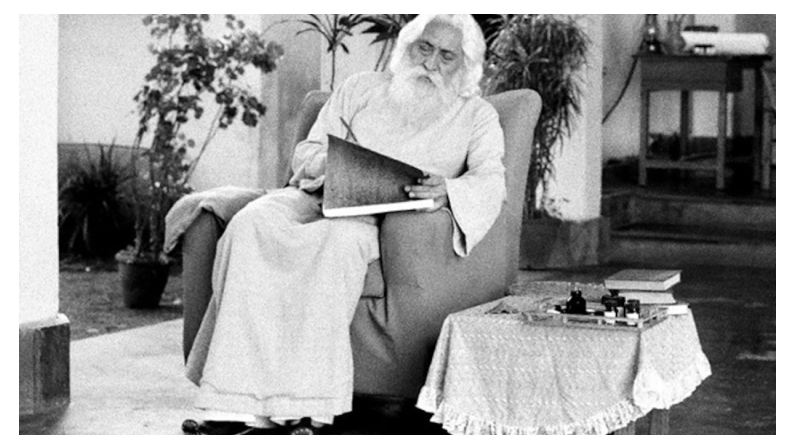Rabindranath Tagore was born in Kolkata, India, on May 7, 1861. He was born in Kolkata, India (formerly Calcutta), into a well-to-do family in West Bengal.
Family Details of Rabindranath Tagore
Father Debendranath Tagore. His Father is a gold miner
Mother: Sarada Devi
Spouse: Rinalini Devi
Rabindranath Tagore grandfather Dwarkanath Tagore was a rich landlord and social reformer.
Children: Renuka Tagore, Meera Tagore, Rabindranath Tagore, Rabindranath Tagore, and Madhurilatq;
Education Background of Rabindranath Tagore
Rabindranath Tagore’s traditional education started in a Brighton, East Sussex, public school in England. He traveled to England in 1878 because his father wanted him to become a barrister. Later, he was joined by his nephew, niece, and sister-in-law, among other family members, to assist him during his stay in England. Rabindranath hated traditional schooling, hence he was never interested in studying at his school. Afterward, he was admitted to the University College of London, where he had to study law. But he left class once more and picked up several Shakespearean plays on his own. He returned to India and wed Mrinalini Devi when she was ten years old after absorbing the core of English,
Rabindranath Tagore Literary Details
Despite being a proficient writer across all literary forms, Tagore was primarily a poet. His fifty-odd collections of poetry include:
The ideal one is Manasi (1890), the golden boat is Sonar Tari (1894), song offerings are Gitanjali (1910), the wreath of songs is Gitimalya (1914), and the flight of cranes is Balaka (1916).
His poems, such as The Gardener (1913), Fruit-Gathering (1916), and The Fugitive (1921), have been translated into English, but these translations often do not match up with certain volumes in the original Bengali language.
Raktakaravi (1926) [Red Oleanders], Dakghar (1912) [The Post Office], Achalayatan (1912) [The Immovable], Muktadhara (1922) [The Waterfall], and Raja (1910) [The King of the Dark Chamber] are some of Tagore’s most well-known dramas.
He has written numerous collections of short stories and
Rabindranath Tagore Nobel Prize
Tagore won many prizes. He won the Literature Nobel Prize in 1913. Just after the Jallianwala Bagh murder in 1919, he resigned the knighthood rank he had received from King George V in 1915. Eventually, in Mar 2004, the Nobel Prize was taken from Visva-Bharati, and the Swedish Academy delivered two copies of the prize—one made of gold and the other of bronze—that December. But in 2016, the robbers’ hiding place was discovered, and the treasure was retrieved.
Rabindranath Tagore Independence Movement
Though in his own non-sentimental and imaginative style, Tagore occasionally took part in the Indian nationalist movement. Gandhi, the political pioneer of modern India, was a close friend of Tagore. Tagore gained prominence as one of the designers of contemporary India.
In Discovery of India, Jawaharlal Nehru, the country’s first prime minister, stated that Tagore and Gandhi were without a doubt the two most notable and influential people of the first half of the 20th century. Tagore has had a profound impact on Indian thought, particularly on the minds of the country’s rising generations. His writings have influenced the development of all contemporary Indian languages, not only Bengali, the language in which he wrote. Among all the Indians.
How did Rabindranath Tagore die?
Rabindranath Tagore death anniversary: Date, significance …
He was diagnosed with severe uremia and a blocked urinary bladder. Dr Jyotiprakash Sarkar and Dr Bidhan Chandra Roy insisted he undergo surgery, against his wish, on July 30, 1941. Complications from the surgery led to his death a week later.
In which Rabindranath Tagore Got the Novel Prize?
Gitanjali (1912) which Rabindranath Tagore translated from Bengali into English won the Nobel Prize for Literature.
How many wifes did Rabindranath Tagore have?
A peek into the life of Rabindranath Tagore: Friendship and love.
In 1883, Tagore wed Mrinalini. He lost his wife in a matter of 19 years and never got married again.
